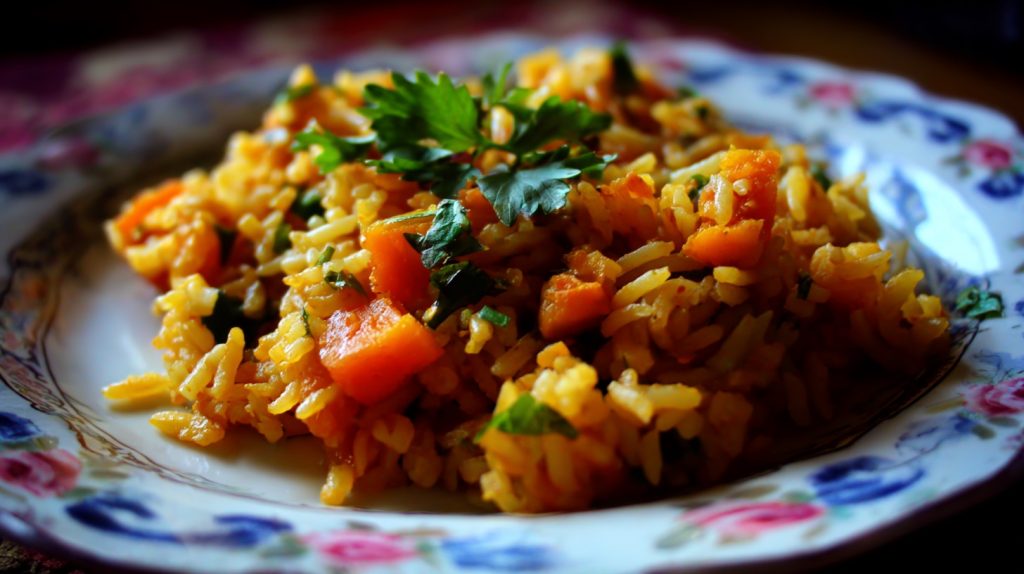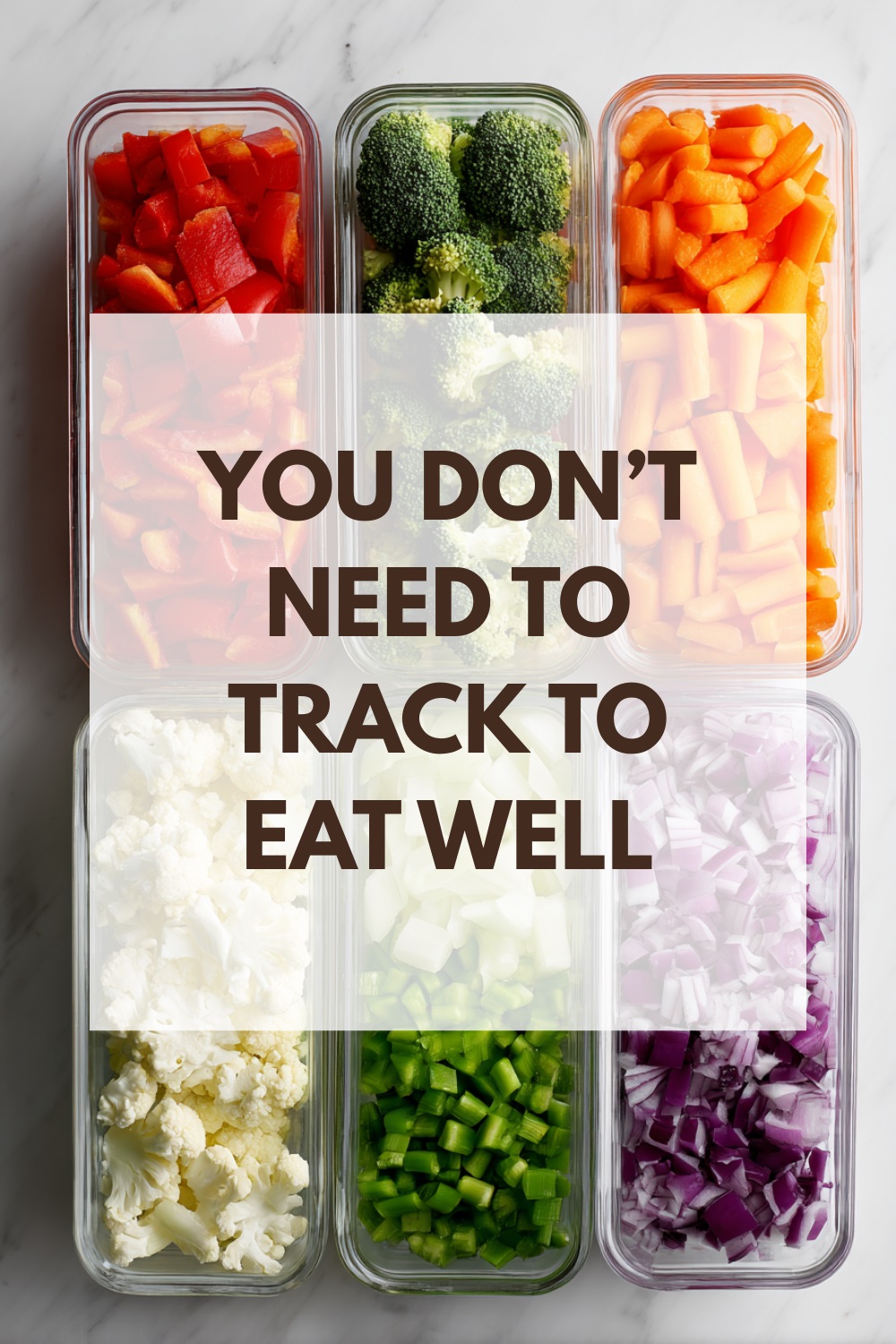If you’ve tried to improve your eating, chances are you’ve been told to start tracking.
Track calories. Weigh your food. Count grams of protein, carbs, and fat.
For some people, that helps for a while. But for a lot of us, it quickly becomes exhausting. You spend more time logging your food than actually eating it.
Eventually, you burn out or give up. You’re tired of entering every snack into an app.
Good news: you don’t have to do any of that to eat better.
Why Tracking Isn’t Always the Answer
Counting every bite might make you feel in control at first. But over time, it can start to feel obsessive. You second-guess yourself. You lose the ability to eat without checking the numbers first.
It also doesn’t teach you how to listen to your body. You end up relying on the tracker instead of your own hunger or satisfaction cues.
That’s not a long-term solution. Especially if you’re trying to build a way of eating that feels natural and sustainable.
Eating Well Doesn’t Require Perfection
Here’s the shift: stop trying to eat “perfectly.”
Instead, focus on building habits that are realistic. Pay attention to how food feels in your body. Aim for meals that leave you satisfied and steady.
You don’t need to weigh, measure, or log your meals to do that.
Start With the Basics: Build Real Meals
One of the easiest ways to eat healthier is to build balanced meals.
You don’t need a calculator for this. Just use your plate as a guide:
- Half the plate: vegetables or fruit
- A quarter: some kind of protein
- A quarter: carbs or starches
- Add a bit of fat or something that makes the meal satisfying
You can adjust this to fit your appetite or what you have on hand. It doesn’t have to be exact. Just aim for balance.
This helps with energy, fullness, and cravings. And it’s simple enough to remember without a plan.

Eat Enough (Seriously)
A lot of people undereat during the day and wonder why they lose control at night.
If you’re skipping meals or eating very light, your body’s going to push back later. That’s not a lack of willpower – that’s your biology doing its job.
Try eating 3 solid meals a day, and a snack or two if you need it. Don’t wait until you’re starving.
Eating enough throughout the day is one of the simplest ways to reduce cravings and overeating at night.
Pay Attention While You Eat
Mindful eating isn’t about perfection. It’s just about awareness.
Start with a pause before your meal. Take a few seconds to check in: Am I hungry? What sounds good? How do I want to feel after this meal?
During the meal, check in once or twice:
- Am I still enjoying this?
- Am I getting full?
- Do I need more or am I good?
That’s it. You don’t need to track macros. You just need to pay attention.
Build a Set of Go-To Meals
You don’t need 30 different recipes.
Pick 4 to 6 meals that are easy to make, taste good, and leave you feeling good. Use them as your base.
Rotate ingredients if you want variety. But keep the structure simple.
This helps with consistency and takes a lot of pressure off meal planning.
Use Visual Structure Instead of Measuring
Think in rough portions, not precise grams.
- A palm-sized piece of protein
- A handful of carbs
- A thumb-sized portion of fat
- A big handful or two of veg
You don’t need a food scale. Your hands are close enough.
Don’t Overcomplicate Snacks
Snacks don’t need to be a big production. Just aim for something that satisfies you and helps you get to the next meal.
Good options include:
- A boiled egg and fruit
- Yogurt with nuts
- Crackers and hummus
- A protein bar and a glass of water
Skip the “low-calorie” snacks that leave you hungrier. Go for real food, even in small amounts.
Reflect, Don’t Track
Instead of writing down everything you eat, try a simple daily check-in:
- Did I eat enough today?
- Did my meals leave me satisfied?
- Did I get too hungry at any point?
- Did I eat mostly out of hunger, or for other reasons?
This helps you stay aware without getting bogged down in numbers.
You’ll start noticing patterns that matter. That’s what actually helps you adjust your habits.
Let Go of the All-or-Nothing Thinking
Some days you’ll eat great. Some days you’ll feel off.
You don’t need to “start over” tomorrow. You don’t need to punish yourself. You don’t need to make up for anything.
One meal, one snack, one day doesn’t make or break your progress.
What matters is your average habits over time.
Final Thoughts
You can absolutely eat healthier without tracking, counting, or weighing anything.
You don’t need more data. You need more consistency.
You don’t need more rules. You need more structure that works for you.
You don’t need perfection. You need to keep showing up.
Trust that simple habits done consistently will take you further than strict plans you can’t stick to.
This is how real change happens. Quietly, steadily, and without needing a food log to tell you you’re doing it right.

